Mostly RPA is based on certain norms that it shall follow under the given specific circumstances. Still theres definitely a relationship between RPA and AI even if youre in the camp that thinks RPA does not actually qualify as AI.
 The Evolution Digitization Erp Ecommerce Mobile Self Service Rpa Ai Ipa V Digital Transformation Artificial Intelligence Technology Technology
The Evolution Digitization Erp Ecommerce Mobile Self Service Rpa Ai Ipa V Digital Transformation Artificial Intelligence Technology Technology
Robotic Process Automation RPA Artificial Intelligence AI and Machine Learning ML are three distinct but overlapping areas of technology.

Rpa vs ai. The difference between these two notions lies in their focus. RPA is a software robot that can mimic human actions. The RPAAI Continuum - whilst it can be argued that RPA is the relatively simpler of the two types of technologies they are very different beasts indeed.
As said earlier RPA helps in automating business workflows but if any decision making needs to be backed by the application of knowledge this is where the limitation of RPA. Simply RPA mimics back-end office functions usually performed by humans. The goal is to focus on mundane repetitive tasks that are really a waste of human efforts and time.
While RPA is used to work in conjunction with people by automating repetitive processes attended automation AI is viewed as a form of technology to replace human labor and automate end-to-end unattended automation. While RPA is used alongside people to automate repetitive processes AI is seen as a technology that replaces human labor and provides end-to-end automation of complex processes. AI is an umbrella term for multiple technologies one of which is AI it enables RPA to be more resilient and productive.
Robotic Process Automation RPA and Artificial Intelligence AI are not mere buzzwords. Unlike RPA AI is driven by data. Above we mentioned RPAs capability to automate routine work.
AI with doing vs. AI is data driven and RPA is process driven. In fact the global RPA market is expected to reach 2556 billion by 2027 and the AI market is forecast to reach a monumental 3909 billion by 2025.
They get conflated with people sometimes asking Is RPA AI To be very clear RPA is not AI but can be used to assist AI with simple tasks as well explain below. Its goal is to simulate intelligence. RPA is a technology that amplifies business values by streamlining workflow and increasing business productivity.
While RPA Robotic Process Automation is a software solution imitating human practices AI Artificial Intelligence simulates human intelligence using machines especially computer systems. And that relationship is growing. 8 rows Artificial Intelligence.
RPA and AI are opposite ends of the IA or Intelligent Automation continuum which also comprises cognitive intelligence and machine learning. It can be considered as a doer of tasks. RPA uses structured inputs and logic while AI uses unstructured inputs and develops its own logic.
RPA is different from AI in terms of its applications and performance. These kinds of pattern recognition would only less time for the human brain to perform. AI technologies that augment and mimic human judgment and behavior complement RPA technologies that replicate rules-based human actions says Chris Huff chief strategy officer at Kofax.
Some AI practical applications include language processing speech and visual recognition and system management etc. AI is data-driven and RPA is process-driven. The essential differentiator between RPA and AI is that AI is a projection of human intelligence by technology while RPA is a Software application that mimics human behavior.
Its important for businesses to recognize that RPA and AI are all part of a single spectrum and there is no need to race to the end of it. Companies across the world have been using these technologies to automate tasks improve productivity and allow the human workforce to focus on human-centric tasks. Whereas AIs primary objective is to emulate humans decision-making capabilities it aims to be a thinker.
While RPA comes with many limitations combining ML with RPA could help in overcoming the limitations of Robotic Process Automation for an RPA developer. RPA and AI technology are both great tools to streamline Business Process Automation but together they are a force to reckon with. According to me the main difference between RPA and AI is that AI is the simulation of human intelligence by machines whereas RPA is a software Robot that mimics human actions.
Thinking or muscles and brain. Simply put we can compare RPA vs. And while machine learning aims to acquire knowledge AI actually aims to become more intelligent.
When AI is integrated with RPA it allows the automation process to begin much faster creating an automation continuum. The key difference is that the robots of RPA are dumb whilst the AI is selflearning. At a high level AI is essentially an umbrella term for various softwaresuch as machine learning as I mentioned earlierthat can demonstrate intelligence.
What Is The Difference Between Ai And Rpa Quora
 Techy Word Of The Week Rpa Robotic Process Automation
Techy Word Of The Week Rpa Robotic Process Automation
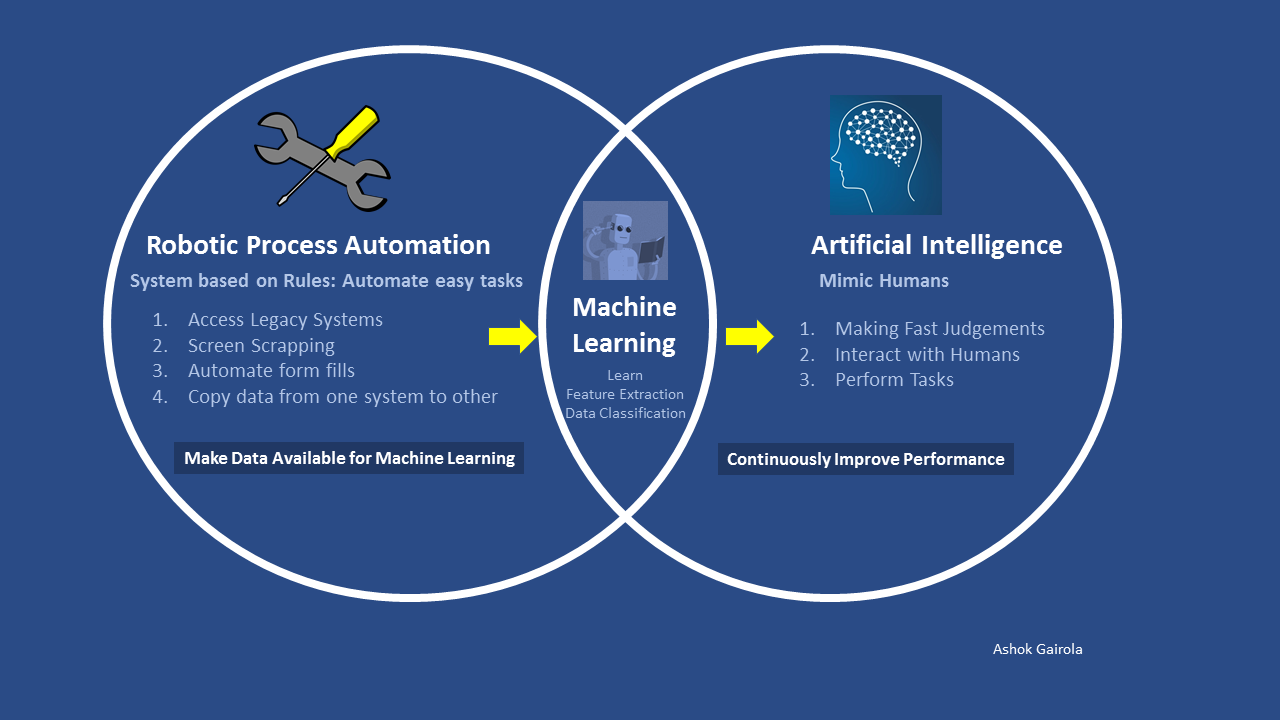 Robotic Process Automation Rpa Vs Artificial Intelligence By Ashok Gairola Medium
Robotic Process Automation Rpa Vs Artificial Intelligence By Ashok Gairola Medium
 The Convergence Of Rpa And Ai Can Boost Business Process Automation Dbi Srl
The Convergence Of Rpa And Ai Can Boost Business Process Automation Dbi Srl
 Rpa And Ai A Comparative Study Today S Business Environment Is Quite By Puresoftware Medium
Rpa And Ai A Comparative Study Today S Business Environment Is Quite By Puresoftware Medium
 What Are The Best Rpa Alternatives On The Market
What Are The Best Rpa Alternatives On The Market
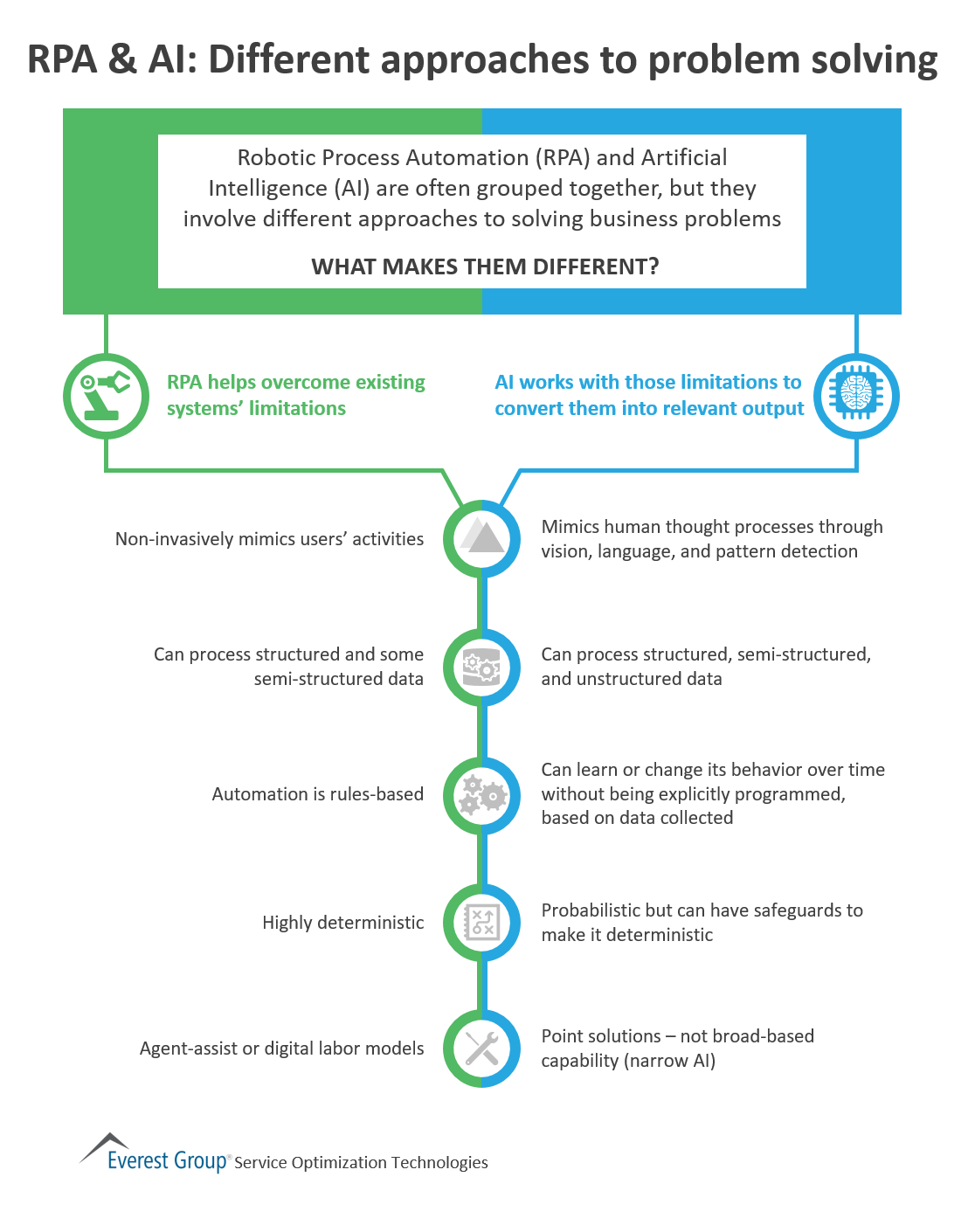 Rpa Ai Different Approaches To Problem Solving Market Insights Everest Group
Rpa Ai Different Approaches To Problem Solving Market Insights Everest Group
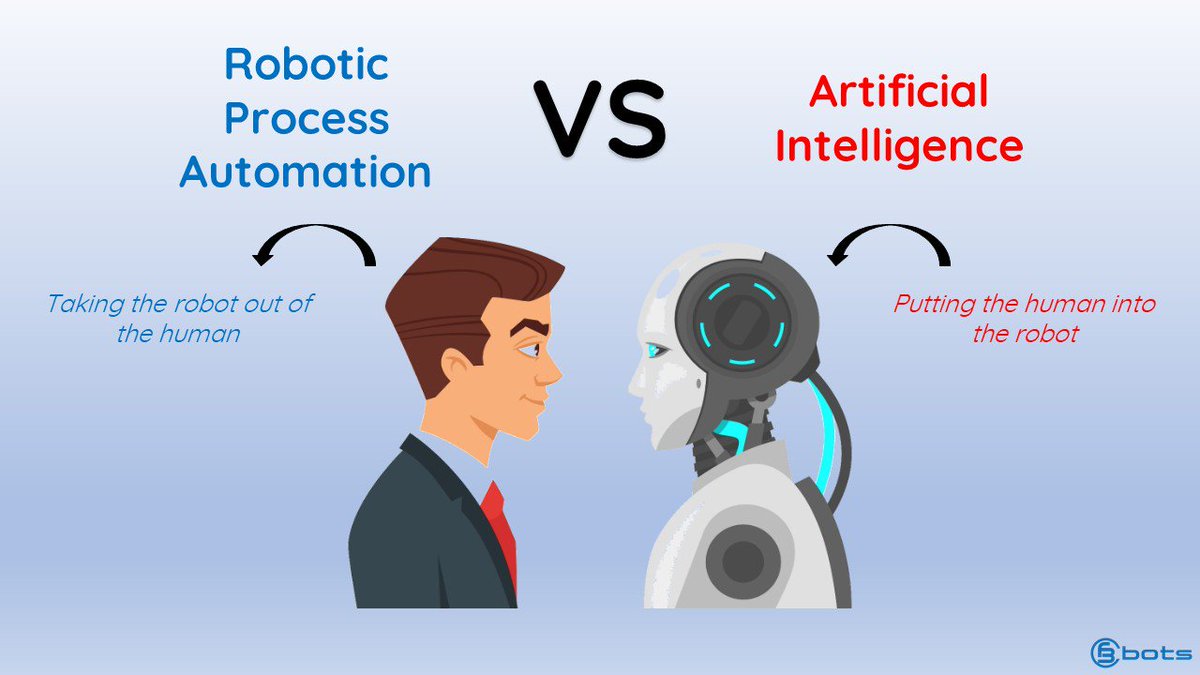 Cfb Bots Pte Ltd On Twitter The Difference Between Rpa And Ai Rpa Taking The Robot Out Of The Human Ai Putting The Human Into The Robot Roboticprocessautomation Rpa Artificialintelligence
Cfb Bots Pte Ltd On Twitter The Difference Between Rpa And Ai Rpa Taking The Robot Out Of The Human Ai Putting The Human Into The Robot Roboticprocessautomation Rpa Artificialintelligence
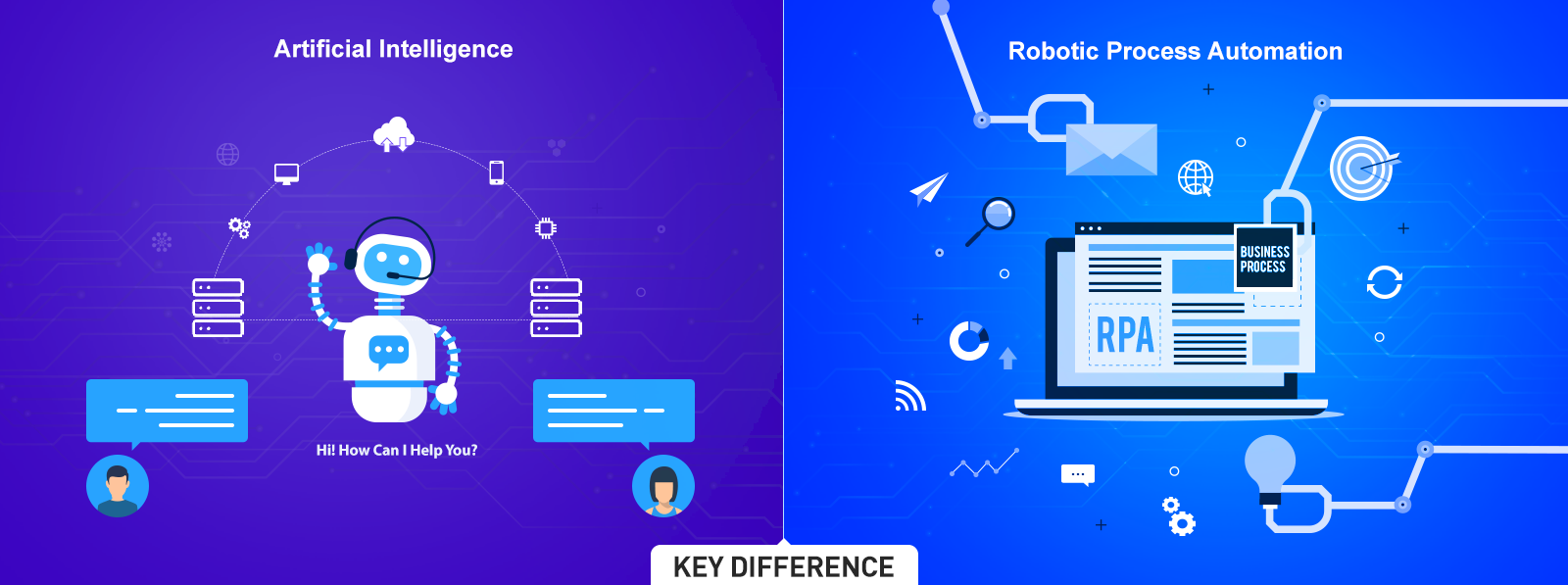 Robotic Process Automation Vs Machine Learning What S The Difference
Robotic Process Automation Vs Machine Learning What S The Difference
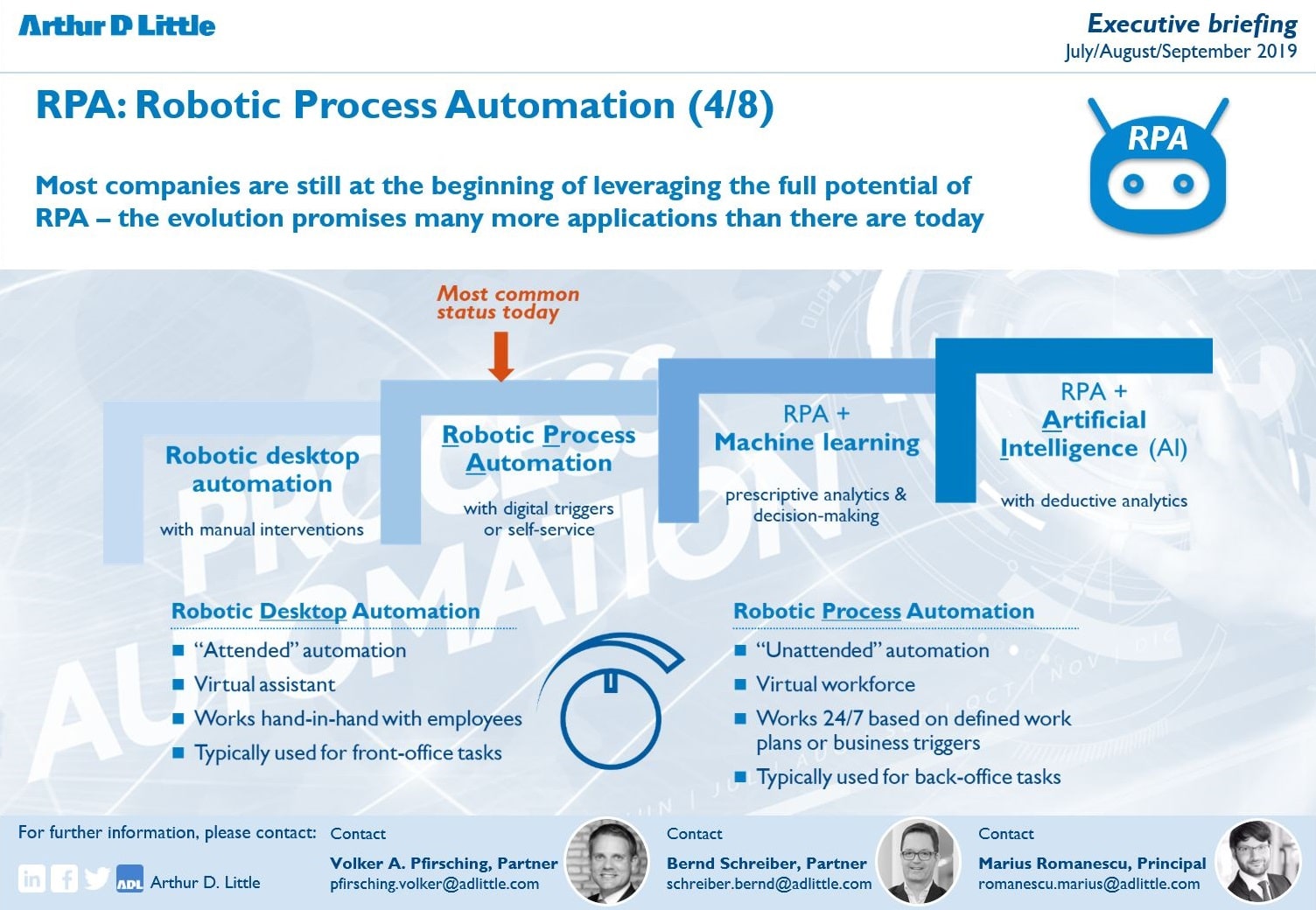 Rpa Robotic Process Automation Arthur D Little Argentina
Rpa Robotic Process Automation Arthur D Little Argentina
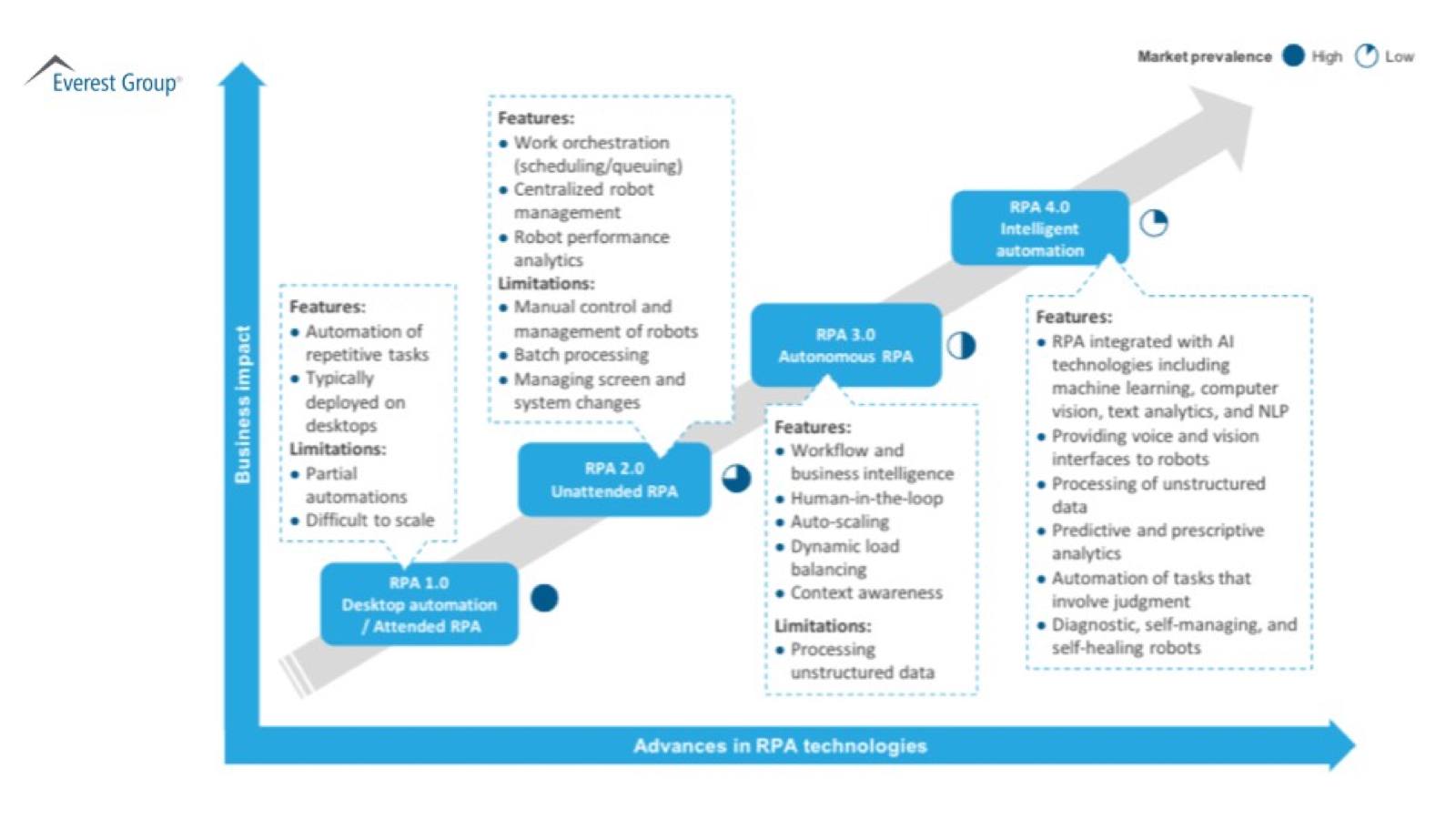 Benefits Of Intelligent Automation Ia Vs Rpa Workfusion
Benefits Of Intelligent Automation Ia Vs Rpa Workfusion
 Rpa Vs Ai Artificial Intelligence Vs Rpa Robotic Process Automation 2020 Mind Data Intelligence Consulting Services
Rpa Vs Ai Artificial Intelligence Vs Rpa Robotic Process Automation 2020 Mind Data Intelligence Consulting Services
 Robotic Process Automation Vs Machine Learning Vs Ai
Robotic Process Automation Vs Machine Learning Vs Ai
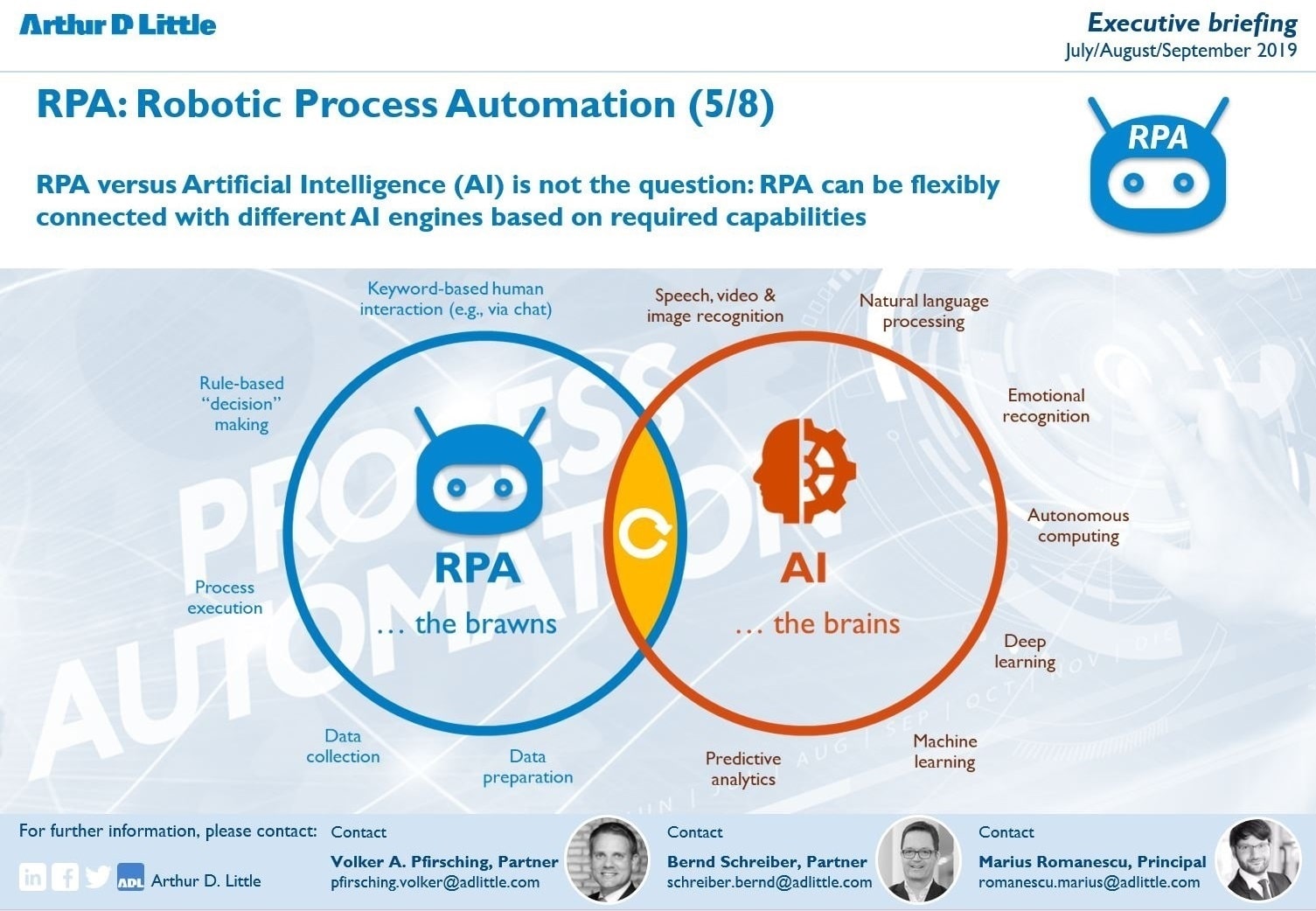 Rpa Robotic Process Automation Arthur D Little Argentina
Rpa Robotic Process Automation Arthur D Little Argentina
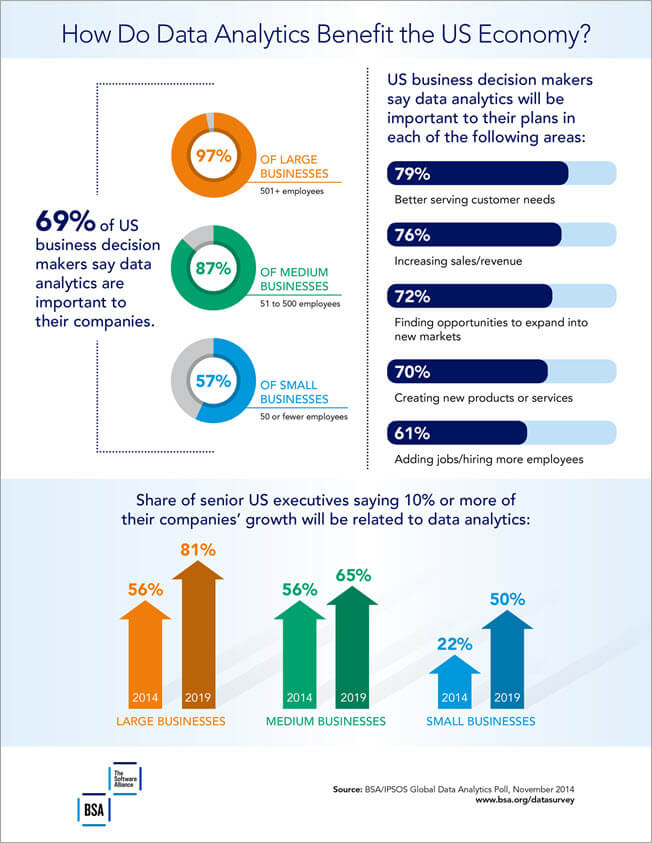
No comments:
Post a Comment
Note: only a member of this blog may post a comment.